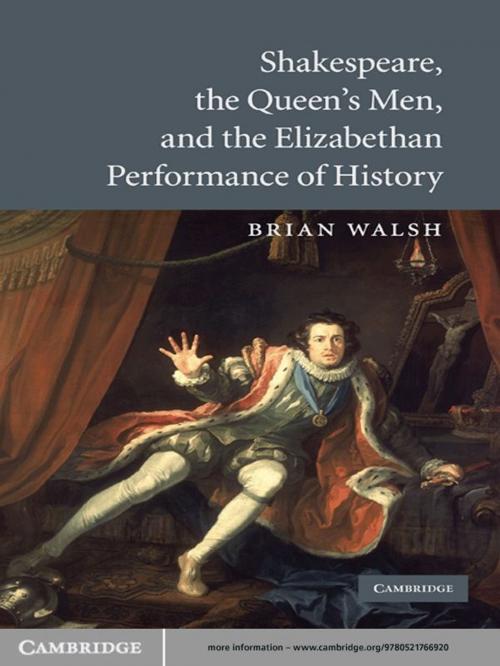Shakespeare, the Queen's Men, and the Elizabethan Performance of History
Fiction & Literature, Literary Theory & Criticism, British, Nonfiction, Entertainment, Performing Arts| Author: | Brian Walsh | ISBN: | 9780511850660 |
| Publisher: | Cambridge University Press | Publication: | December 10, 2009 |
| Imprint: | Cambridge University Press | Language: | English |
| Author: | Brian Walsh |
| ISBN: | 9780511850660 |
| Publisher: | Cambridge University Press |
| Publication: | December 10, 2009 |
| Imprint: | Cambridge University Press |
| Language: | English |
The Elizabethan history play was one of the most prevalent dramatic genres of the 1590s, and so was a major contribution to Elizabethan historical culture. The genre has been well served by critical studies that emphasize politics and ideology; however, there has been less interest in the way history is interrogated as an idea in these plays. Drawing in period-sensitive ways on the field of contemporary performance theory, this book looks at the Shakespearean history play from a fresh angle, by first analyzing the foundational work of the Queen's Men, the playing company that invented the popular history play. Through innovative readings of their plays including The Famous Victories of Henry V before moving on to Shakespeare's 1 Henry VI, Richard III, and Henry V, this book investigates how the Queen's Men's self-consciousness about performance helped to shape Shakespeare's dramatic and historical imagination.
The Elizabethan history play was one of the most prevalent dramatic genres of the 1590s, and so was a major contribution to Elizabethan historical culture. The genre has been well served by critical studies that emphasize politics and ideology; however, there has been less interest in the way history is interrogated as an idea in these plays. Drawing in period-sensitive ways on the field of contemporary performance theory, this book looks at the Shakespearean history play from a fresh angle, by first analyzing the foundational work of the Queen's Men, the playing company that invented the popular history play. Through innovative readings of their plays including The Famous Victories of Henry V before moving on to Shakespeare's 1 Henry VI, Richard III, and Henry V, this book investigates how the Queen's Men's self-consciousness about performance helped to shape Shakespeare's dramatic and historical imagination.















